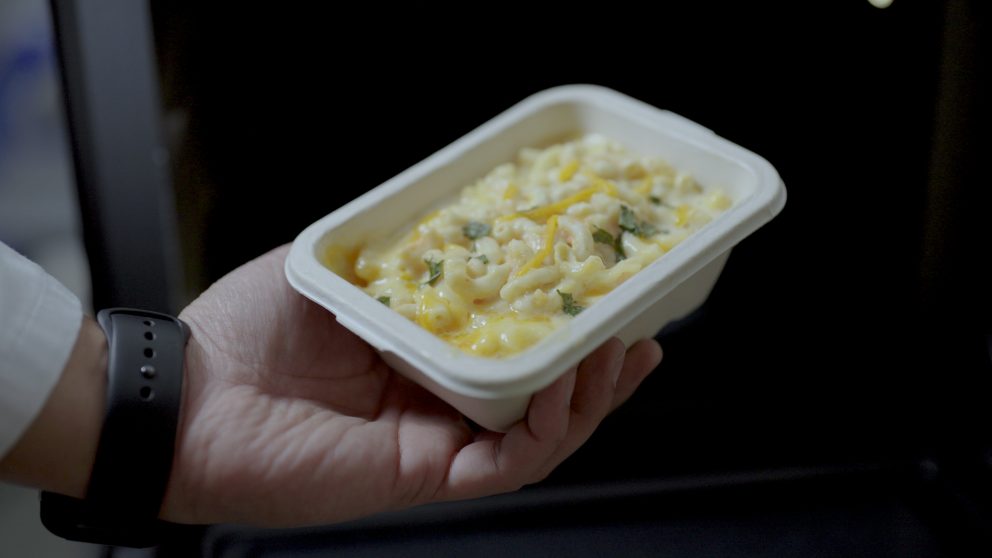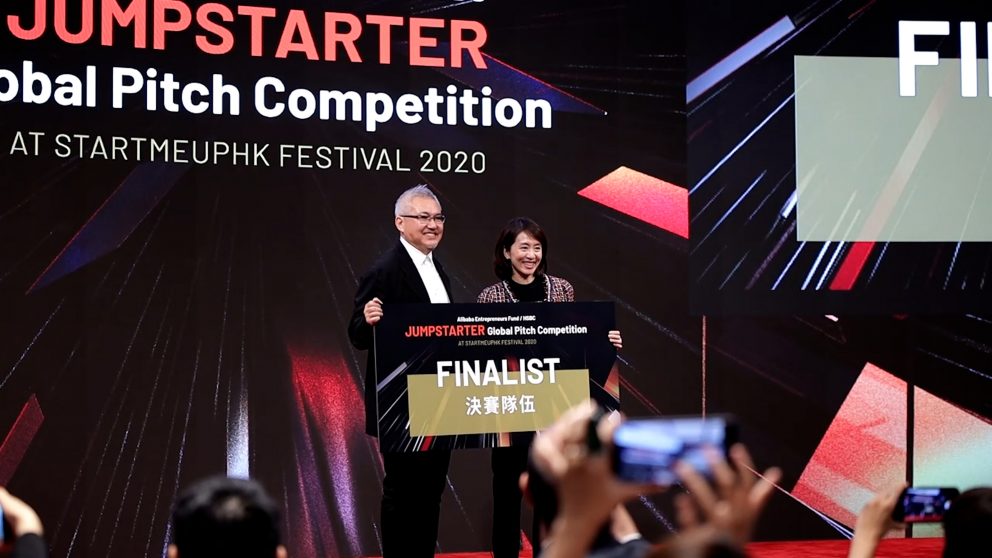
The startup recently teamed up with a Hong Kong-based airline to replace its in-flight meal packaging and cups with its own plant-based material
Hong Kong-based biotech startup Ecoinno is on a mission to reduce the environmental damage caused by single-use plastic takeout packaging, which has become especially common during the coronavirus pandemic.
The company’s plant-based material is the first non-food product green-lit by Hong Kong authorities to be treated like food waste as part of an initiative to turn compost into energy.
“We leave nature as is,” Ecoinno founder George Chen said in an interview with Alizila, pointing to the fully compostable sugarcane and corn fibers that his team invented.
The end result — a type of paper material that’s lightweight, temperature-tolerant and oil-resistant — can compost in just 75 days under natural conditions, he added.
These properties give it a leg up on traditional plastics, like polythene and polypropylene, which may take hundreds of years to break down and account for a large share of waste in Hong Kong’s landfills.
A deluge of plastic takeaway containers during the pandemic has alarmed the Asian financial hub, which accelerated policies to curb food-service waste and carbon emissions this year. In July, Hong Kong announced a two-stage ban on disposable tableware and food containers expected to start in 2025.
“People [here] are extremely sophisticated and looking for a solution to solve the plastic waste problem,” said Chen.
A Greener Life
Ecoinno sees Hong Kong as the first testing ground for its solution, but ultimately, Chen said its vision is to expand and commercialize its solution globally.
The time has never been better, as governments worldwide step up their efforts to cut plastic waste. In 2019, 170 nations pledged to reduce their use of plastic by 2030.
Thinking big is about daring to face and confront huge problems and finding a way to tackle them
Chen said the wave of new laws and policies also reflects the degree to which citizens have witnessed the damage done to the environment and are advocating for a greener way of life.
Brands are also jumping on board. Ecoinno has developed brand-specific materials for a range of partners, including designing a fully plant-based coffee capsule for an Italian coffee company.
The startup recently teamed up with a Hong Kong-based airline to replace its in-flight meal packaging and cups with its own plant-based material, a move that also helped lower the courier’s costs by 30%.
“There is nothing stopping us from thinking big, ” said Chen.



Jumpstarting Growth
Last year, Ecoinno was one of the winners in Alibaba Hong Kong Entrepreneurs Fund’s Jumpstarter global pitch competition. The company received US$6 million in funding to build its research and development facilities, including an entirely automated production line in Hong Kong’s Tai Po district.
“Winning Jumpstarter was a huge encouragement,” Chen recalled. “All the support we’ve received helped strengthened our determination: We need to make it happen, we need to land the product and provide solutions.”
Ecoinno stood out among 2,000 applicants last year as one of five Jumpstarter finalists. Other finalists included Hong Kong’s Fano Labs Ltd., Shenzhen-based Asia Regenerative Medicine, San Francisco-based Snipfeed and The Block Ledger from Melbourne.
Jumpstarter launched in 2017 as a non-profit initiative to invigorate the Hong Kong startup ecosystem but has since evolved into a platform that celebrates young entrepreneurs across the globe.
To receive the latest news directly in your inbox, sign up for the weekly Alizila newsletter




